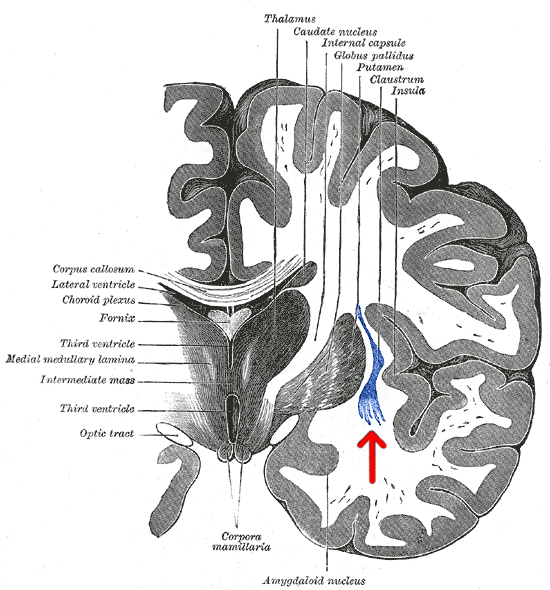fromderinside
Mazzie Daius
- Joined
- Oct 6, 2008
- Messages
- 15,945
- Basic Beliefs
- optimist
The late Francis Crick proposed, through anatomical analysis that the Claustrum, underlying areas of frontal cortex was likely locus of consciousness back in two thousand ought-five. Now others are confirming by other means.
The claustrum's proposed role in consciousness is supported by the effect and target localization of Salvia divinorum. http://www.ncbi.nlm.nih.gov/pmc/articles/PMC3935397/
Not everything is accomplished by wiz bang new methods like fMRI. His work gives new hope that traditionalists, those who are well grounded in anatomy, physiology, pharmacology, behavior and scientific principles may one day again take center stage in hot areas of brain research. Aren't we all getting tired of that Harvard gang aguing with itself about consciousness Togo?
The claustrum's proposed role in consciousness is supported by the effect and target localization of Salvia divinorum. http://www.ncbi.nlm.nih.gov/pmc/articles/PMC3935397/
This article brings together three findings and ideas relevant for the understanding of human consciousness: (I) Crick’s and Koch’s theory that the claustrum is a “conductor of consciousness” crucial for subjective conscious experience. (II) Subjective reports of the consciousness-altering effects the plant Salvia divinorum, whose primary active ingredient is salvinorin A, a κ-opioid receptor agonist. (III) The high density of κ-opioid receptors in the claustrum. Fact III suggests that the consciousness-altering effects of S. divinorum/salvinorin A (II) are due to a κ-opioid receptor mediated inhibition of primarily the claustrum and, additionally, the deep layers of the cortex, mainly in prefrontal areas.
Not everything is accomplished by wiz bang new methods like fMRI. His work gives new hope that traditionalists, those who are well grounded in anatomy, physiology, pharmacology, behavior and scientific principles may one day again take center stage in hot areas of brain research. Aren't we all getting tired of that Harvard gang aguing with itself about consciousness Togo?



